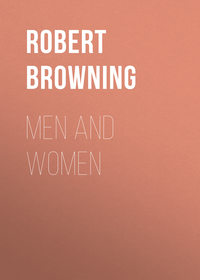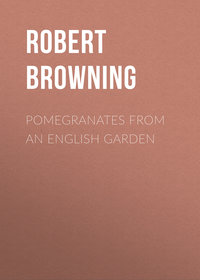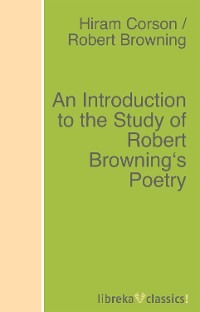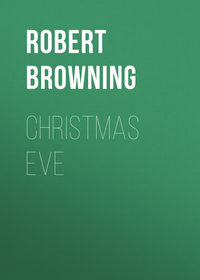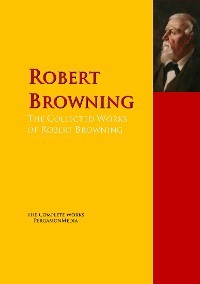The Pied Piper of Hamelin, and Other Poems
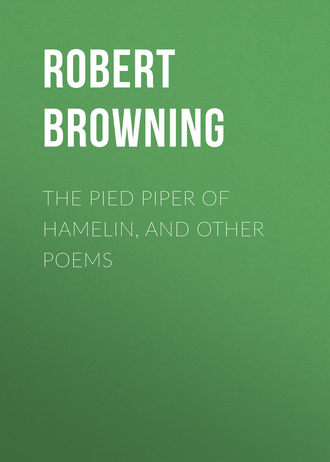 полная версия
полная версияThe Pied Piper of Hamelin, and Other Poems
Жанр: зарубежная поэзиязарубежная классиказарубежная старинная литературасерьезное чтениеcтихи, поэзия
Язык: Английский
Год издания: 2017
Добавлена:
Настройки чтения
Размер шрифта
Высота строк
Поля
CLIVE
I and Clive were friends – and why not? Friends! I think you laugh, my lad.Clive it was gave England India, while your father gives – egad,England nothing but the graceless boy who lures him on to speak —“Well, Sir, you and Clive were comrades – ” with a tongue thrust in your cheek!Very true: in my eyes, your eyes, all the world’s eyes, Clive was man,I was, am, and ever shall be – mouse, nay, mouse of all its clanSorriest sample, if you take the kitchen’s estimate for fame;While the man Clive – he fought Plassy, spoiled the clever foreign game,Conquered and annexed and Englished!Never mind! As o’er my punch(You away) I sit of evenings, – silence, save for biscuit crunch,Black, unbroken, – thought grows busy, thrids each pathway of old years,Notes this forthright, that meander, till the long past life appearsLike an outspread map of country plodded through, each mile and rood,Once, and well remembered still, – I’m startled in my solitudeEver and anon by – what’s the sudden mocking light that breaksOn me as I slap the table till no rummer-glass but shakesWhile I ask – aloud, I do believe, God help me! – “Was it thus?Can it be that so I faltered, stopped when just one step for us – ”(Us, – you were not born, I grant, but surely some day born would be)“ – One bold step had gained a province” (figurative talk, you see)“Got no end of wealth and honour, – yet I stood stock-still no less?”– “For I was not Clive,” you comment: but it needs no Clive to guessWealth were handy, honour ticklish, did no writing on the wallWarn me “Trespasser, ’ware man-traps!” Him who braves that notice – callHero! None of such heroics suit myself who read plain words,Doff my hat, and leap no barrier. Scripture says, the land’s the Lord’s:Louts then – what avail the thousand, noisy in a smock-frocked ring,All-agog to have me trespass, clear the fence, be Clive their king?Higher warrant must you show me ere I set one foot beforeT’other in that dark direction, though I stand for evermorePoor as Job and meek as Moses. Evermore? No! By and byJob grows rich and Moses valiant, Clive turns out less wise than I.Don’t object “Why call him friend, then?” Power is power, my boy, and stillMarks a man, – God’s gift magnific, exercised for good or ill.You’ve your boot now on my hearth-rug, tread what was a tiger’s skin;Rarely such a royal monster as I lodged the bullet in!True, he murdered half a village, so his own death came to pass;Still, for size and beauty, cunning, courage – ah, the brute he was!Why, that Clive, – that youth, that greenhorn, that quill-driving clerk, in fine, —He sustained a siege in Arcot … But the world knows! Pass the wine.Where did I break off at? How bring Clive in? Oh, you mentioned “fear!”Just so: and, said I, that minds me of a story you shall hear.We were friends then, Clive and I: so, when the clouds, about the orbLate supreme, encroaching slowly, surely threaten to absorbRay by ray its noontide brilliance, – friendship might, with steadier eyeDrawing near, hear what had burned else, now no blaze – all majesty.Too much bee’s-wing floats my figure? Well, suppose a castle’s new:None presume to climb its ramparts, none find foothold sure for shoe’Twixt those squares and squares of granite plating the impervious pileAs his scale-mail’s warty iron cuirasses a crocodile.Reels that castle thunder-smitten, storm-dismantled? From withoutScrambling up by crack and crevice, every cockney prates aboutTowers – the heap he kicks now! Turrets – just the measure of his cane!Will that do? Observe moreover – (same similitude again) —Such a castle seldom crumbles by sheer stress of cannonade:’Tis when foes are foiled, and fighting’s finished that vile rains invade,Grass o’ergrows, o’ergrows till night-birds congregating find no holesFit to build like the topmost sockets made for banner-poles.So Clive crumbled slow in London, crashed at last.A week before,Dining with him, – after trying churchyard chat of days of yore, —Both of us stopped, tired as tombstones, head-piece, foot-piece, when they leanEach to other, drowsed in fog-smoke, o’er a coffined Past between.As I saw his head sink heavy, guessed the soul’s extinguishmentBy the glazing eyeball, noticed how the furtive fingers wentWhere a drug-box skulked behind the honest liquor, – “One more throwTry for Clive!” thought I: “Let’s venture some good rattling question!” So —“Come Clive, tell us” – out I blurted – “what to tell in turn, years hence,When my boy – suppose I have one – asks me on what evidenceI maintain my friend of Plassy proved a warrior every whitWorth your Alexanders, Cæsars, Marlboroughs, and – what said Pitt? —Frederick the Fierce himself! Clive told me once” – I want to say —“Which feat out of all those famous doings bore the bell away– In his own calm estimation, mark you, not the mob’s rough guess —Which stood foremost as evincing what Clive called courageousness!Come! What moment of the minute, what speck-centre in the wideCircle of the action saw your mortal fairly deified?(Let alone that filthy sleep-stuff, swallow bold this wholesome Port!)If a friend has leave to question, – when were you most brave, in short?”Up he arched his brows o’ the instant – formidably Clive again.“When was I most brave? I’d answer, were the instance half as plainAs another instance that’s a brain-lodged crystal – curse it! – hereFreezing when my memory touches – ugh! – the time I felt most fear.Ugh! I cannot say for certain if I showed fear – anyhow,Fear I felt, and, very likely, shuddered, since I shiver now.”“Fear!” smiled I. “Well, that’s the rarer: that’s a specimen to seek,Ticket up in one’s museum, Mind-Freaks, Lord Clive’s Fear, Unique!”Down his brows dropped. On the table painfully he pored as thoughTracing, in the stains and streaks there, thoughts encrusted long ago.When he spoke ’twas like a lawyer reading word by word some will,Some blind jungle of a statement, – beating on and on untilOut there leaps fierce life to fight with.“This fell in my factor-days.Desk-drudge, slaving at Saint David’s, one must game, or drink, or craze.I chose gaming: and, – because your high-flown gamesters hardly takeUmbrage at a factor’s elbow, if the factor pays his stake, —I was winked at in a circle where the company was choice,Captain This and Major That, men high of colour, loud of voice,Yet indulgent, condescending to the modest juvenileWho not merely risked, but lost his hard-earned guineas with a smile.“Down I sat to cards, one evening, – had for my antagonistHomebody whose name’s a secret – you’ll know why – so, if you list,Call him Cock o’ the Walk, my scarlet son of Mars from head to heel!Play commenced: and, whether Cocky fancied that a clerk must feelQuite sufficient honour came of bending over one green baize,I the scribe with him the warrior, guessed no penman dared to raiseShadow of objection should the honour stay but playing endMore or less abruptly, – whether disinclined he grew to spendPractice strictly scientific on a booby born to stareAt – not ask of – lace-and-ruffles if the hand they hide plays fair, —Anyhow, I marked a movement when he bade me ‘Cut!’“I rose.‘Such the new manœuvre, Captain? I’m a novice: knowledge grows.What, you force a card, you cheat, Sir?’“Never did a thunder-clapCause emotion, startle Thyrsis locked with Chloe in his lap,As my word and gesture (down I flung my cards to join the pack)Fired the man of arms, whose visage, simply red before, turned black.“When he found his voice, he stammered ‘That expression once again!’“‘Well, you forced a card and cheated!’“‘Possibly a factor’s brain,Busied with his all important balance of accounts, may deemWeighing words superfluous trouble: cheat to clerkly ears may seemJust the joke for friends to venture: but we are not friends, you see!When a gentleman is joked with, – if he’s good at repartee,He rejoins, as do I – Sirrah, on your knees, withdraw in full!Beg my pardon, or be sure a kindly bullet through your skullLets in light and teaches manner to what brain it finds! Choose quick —Have your life snuffed out or, kneeling, pray me trim yon candle-wick!’“‘Well, you cheated!’“Then outbroke a howl from all the friends around.To his feet sprang each in fury, fists were clenched and teeth were ground.‘End it! no time like the present! Captain, yours were our disgrace!No delay, begin and finish! Stand back, leave the pair a space!Let civilians be instructed: henceforth simply ply the pen,Fly the sword! This clerk’s no swordsman? Suit him with a pistol, then!Even odds! A dozen paces ’twixt the most and least expertMake a dwarf a giant’s equal: nay, the dwarf, if he’s alert,Likelier hits the broader target!’“Up we stood accordingly.As they handed me the weapon, such was my soul’s thirst to tryThen and there conclusions with this bully, tread on and stamp outEvery spark of his existence, that, – crept close to, curled aboutBy that toying, tempting, teasing, fool-forefinger’s middle joint, —Don’t you guess? – the trigger yielded. Gone my chance! and at the pointOf such prime success moreover: scarce an inch above his headWent my ball to hit the wainscot. He was living, I was dead.“Up he marched in flaming triumph – ’twas his right, mind! – up, withinJust an arm’s length. ‘Now, my clerkling,’ chuckled Cocky, with a grinAs the levelled piece quite touched me, ‘Now, Sir Counting-House, repeatThat expression which I told you proved bad manners! Did I cheat?’“‘Cheat you did, you knew you cheated, and, this moment, know as well.As for me, my homely breeding bids you – fire and go to Hell!’“Twice the muzzle touched my forehead. Heavy barrel, flurried wrist.Either spoils a steady lifting. Thrice: then, ‘Laugh at Hell who list,I can’t! God’s no fable either. Did this boy’s eye wink once? No!There’s no standing him and Hell and God all three against me, – so,I did cheat!’“And down he threw the pistol, out rushed – by the doorPossibly, but, as for knowledge if by chimney, roof or floor,He effected disappearance – I’ll engage no glance was sentThat way by a single starer, such a blank astonishmentSwallowed up their senses: as for speaking – mute they stood as mice.“Mute not long, though! Such reaction, such a hubbub in a trice!‘Rogue and rascal! Who’d have thought it? What’s to be expected next,When His Majesty’s Commission serves a sharper as pretextFor … But where’s the need of wasting time now? Naught requires delay:Punishment the Service cries for: let disgrace be wiped awayPublicly, in good broad daylight! Resignation? No, indeed!Drum and fife must play the Rogue’s-March, rank and file be free to speedTardy marching on the rogue’s part by appliance in the rear– Kicks administered shall right this wronged civilian, – never fear,Mister Clive, for – though a clerk – you bore yourself – suppose we say —Just as would beseem a soldier?“‘Gentlemen, attention – pray!First, one word!’“I passed each speaker severally in review.When I had precise their number, names, and styles, and fully knewOver whom my supervision thenceforth must extend, – why, then —“Some five minutes since, my life lay – as you all saw, gentlemen —At the mercy of your friend there. Not a single voice was raisedIn arrest of judgment, not one tongue – before my powder blazed —Ventured “Can it be the youngster plundered, really seemed to markSome irregular proceeding? We conjecture in the dark,Guess at random, – still, for sake of fair play – what if for a freak,In a fit of absence, – such things have been! – if our friend proved weak– What’s the phrase? – corrected fortune! Look into the case, at least!”Who dared interpose between the altar’s victim and the priest?Yet he spared me! You eleven! Whosoever, all or each,To the disadvantage of the man who spared me, utters speech– To his face, behind his back, – that speaker has to do with me:Me who promise, if positions change, and mine the chance should be,Not to imitate your friend and waive advantage!’“Twenty-fiveYears ago this matter happened: and ’tis certain,” added Clive,“Never, to my knowledge, did Sir Cocky have a single breathBreathed against him: lips were closed throughout his life, or since his death,For if he be dead or living I can tell no more than you.All I know is – Cocky had one chance more; how he used it, – grewOut of such unlucky habits, or relapsed, and back againBrought the late-ejected devil with a score more in his train, —That’s for you to judge. Reprieval I procured, at any rate.Ugh – the memory of that minute’s fear makes gooseflesh rise! Why prateLonger? You’ve my story, there’s your instance: fear I did, you see!”“Well” – I hardly kept from laughing – “if I see it, thanks must beWholly to your Lordship’s candour. Not that – in a common case —When a bully caught at cheating thrusts a pistol in one’s face,I should under-rate, believe me, such a trial to the nerve!’Tis no joke, at one-and-twenty, for a youth to stand nor swerve.Fear I naturally look for – unless, of all men alive,I am forced to make exception when I come to Robert Clive.Since at Arcot, Plassy, elsewhere, he and death – the whole world knows —Came to somewhat closer quarters.”Quarters? Had we come to blows,Clive and I, you had not wondered – up he sprang so, out he rappedSuch a round of oaths – no matter! I’ll endeavour to adaptTo our modern usage words he – well, ’twas friendly license – flungAt me like so many fire-balls, fast as he could wag his tongue.“You – a soldier? You – at Plassy? Yours the faculty to nickInstantaneously occasion when your foe, if lightning-quick,– At his mercy, at his malice, – has you, through some stupid inchUndefended in your bulwark? Thus laid open, – not to flinch– That needs courage, you’ll concede me. Then, look here! Suppose the man,Checking his advance, his weapon still extended, not a spanDistant from my temple, – curse him! – quietly had bade me, ‘There!Keep your life, calumniator! – worthless life I freely spare:Mine you freely would have taken – murdered me and my good fameBoth at once – and all the better! Go, and thank your own bad aimWhich permits me to forgive you!’ What if, with such words as these,He had cast away his weapon? How should I have borne me, please?Nay, I’ll spare you pains and tell you. This, and only this, remained —Pick his weapon up and use it on myself. If so had gainedSleep the earlier, leaving England probably to pay on stillRent and taxes for half India, tenant at the Frenchman’s will.”“Such the turn,” said I, “the matter takes with you? Then I abate– No, by not one jot nor tittle, – of your act my estimate.Fear – I wish I could detect there: courage fronts me, plain enough —Call it desperation, madness – never mind! for here’s in roughWhy, had mine been such a trial, fear had overcome disgrace.True, disgrace were hard to bear: but such a rush against God’s face– None of that for me, Lord Plassy, since I go to church at times,Say the creed my mother taught me! Many years in foreign climesRub some marks away – not all, though! We poor sinners reach life’s brink,Overlook what rolls beneath it, recklessly enough, but thinkThere’s advantage in what’s left us – ground to stand on, time to call‘Lord, have mercy!’ ere we topple over – do not leap, that’s all!”Oh, he made no answer, re-absorbed into his cloud. I caughtSomething like “Yes – courage; only fools will call it fear.”If aughtComfort you, my great unhappy hero Clive, in that I heard,Next week, how your own hand dealt you doom, and uttered just the word“Fearfully courageous!” – this, be sure, and nothing else I groaned.I’m no Clive, nor parson either: Clive’s worst deed – we’ll hope condoned.MULÉYKEH
If a stranger passed the tent of Hóseyn, he cried “A churl’s!”Or haply “God help the man who has neither salt nor bread!”– “Nay,” would a friend exclaim, “he needs nor pity nor scornMore than who spends small thought on the shore-sand, picking pearls,– Holds but in light esteem the seed-sort, bears insteadOn his breast a moon-like prize, some orb which of night makes morn.“What if no flocks and herds enrich the son of Sinán?They went when his tribe was mulct, ten thousand camels the due,Blood-value paid perforce for a murder done of old.‘God gave them, let them go! But never since time began,Muléykeh, peerless mare, owned master the match of you,And you are my prize, my Pearl: I laugh at men’s land and gold!’“So in the pride of his soul laughs Hóseyn – and right, I say.Do the ten steeds run a race of glory? Outstripping all,Ever Muléykeh stands first steed at the victor’s staff.Who started, the owner’s hope, gets shamed and named, that day.‘Silence,’ or, last but one, is ‘The Cuffed,’ as we used to callWhom the paddock’s lord thrusts forth. Right, Hóseyn, I say, to laugh!”“Boasts he Muléykeh the Pearl?” the stranger replies: “Be sureOn him I waste nor scorn nor pity, but lavish bothOn Duhl the son of Sheybán, who withers away in heartFor envy of Hóseyn’s luck. Such sickness admits no cure.A certain poet has sung, and sealed the same with an oath,‘For the vulgar – flocks and herds! The Pearl is a prize apart.’”Lo, Duhl the son of Sheybán comes riding to Hóseyn’s tent,And he casts his saddle down, and enters and “Peace!” bids he.“You are poor, I know the cause: my plenty shall mend the wrong.’Tis said of your Pearl – the price of a hundred camels spentIn her purchase were scarce ill paid: such prudence is far from meWho proffer a thousand. Speak! Long parley may last too long.”Said Hóseyn, “You feed young beasts a many, of famous breed,Slit-eared, unblemished, fat, true offspring of Múzennem:There stumbles no weak-eyed she in the line as it climbs the hill.But I love Muléykeh’s face: her forefront whitens indeedLike a yellowish wave’s cream-crest. Your camels – go gaze on them!Her fetlock is foam-splashed too. Myself am the richer still.”A year goes by: lo, back to the tent again rides Duhl.“You are open-hearted, ay – moist-handed, a very prince.Why should I speak of sale? Be the mare your simple gift!My son is pined to death for her beauty: my wife prompts ‘Fool,Beg for his sake the Pearl! Be God the rewarder, sinceGod pays debts seven for one: who squanders on Him shows thrift.’”Said Hóseyn, “God gives each man one life, like a lamp, then givesThat lamp due measure of oil: lamp lighted – hold high, wave wideIts comfort for others to share! once quench it, what help is left?The oil of your lamp is your son: I shine while Muléykeh lives.Would I beg your son to cheer my dark if Muléykeh died?It is life against life: what good avails to the life-bereft?”Another year, and – hist! What craft is it Duhl designs?He alights not at the door of the tent as he did last time,But, creeping behind, he gropes his stealthy way by the trenchHalf-round till he finds the flap in the folding, for night combinesWith the robber – and such is he: Duhl, covetous up to crime,Must wring from Hóseyn’s grasp the Pearl, by whatever the wrench.“He was hunger-bitten, I heard: I tempted with half my store,And a gibe was all my thanks. Is he generous like Spring dew?Account the fault to me who chaffered with such an one!He has killed, to feast chance comers, the creature he rode: nay, more —For a couple of singing-girls his robe has he torn in two:I will beg! Yet I nowise gained by the tale of my wife and son.“I swear by the Holy House, my head will I never washTill I filch his Pearl away. Fair dealing I tried, then guile,And now I resort to force. He said we must live or die:Let him die, then, – let me live! Be bold – but not too rash!I have found me a peeping-place: breast, bury your breathing whileI explore for myself! Now, breathe! He deceived me not, the spy!“As he said – there lies in peace Hóseyn – how happy! BesideStands tethered the Pearl: thrice winds her headstall about his wrist:’Tis therefore he sleeps so sound – the moon through the roof reveals.And, loose on his left, stands too that other, known far and wide,Buhéyseh, her sister born: fleet is she yet ever missedThe winning tail’s fire-flash a-stream past the thunderous heels.“No less she stands saddled and bridled, this second, in case some thiefShould enter and seize and fly with the first, as I mean to do.What then? The Pearl is the Pearl: once mount her we both escape.”Through the skirt-fold in glides Duhl, – so a serpent disturbs no leafIn a bush as he parts the twigs entwining a nest: clean through,He is noiselessly at his work: as he planned, he performs the rape.He has set the tent-door wide, has buckled the girth, has clippedThe headstall away from the wrist he leaves thrice bound as before,He springs on the Pearl, is launched on the desert like bolt from bow.Up starts our plundered man: from his breast though the heart be ripped,Yet his mind has the mastery: behold, in a minute more,He is out and off and away on Buhéyseh, whose worth we know!And Hóseyn – his blood turns flame, he has learned long since to ride,And Buhéyseh does her part, – they gain – they are gaining fastOn the fugitive pair, and Duhl has Ed-Dárraj to cross and quit,And to reach the ridge El-Sabán, – no safety till that he spied!And Buhéyseh is, bound by bound, but a horse-length off at last,For the Pearl has missed the tap of the heel, the touch of the bit.She shortens her stride, she chafes at her rider the strange and queer:Buhéyseh is mad with hope – beat sister she shall and must,Though Duhl, of the hand and heel so clumsy, she has to thank.She is near now, nose by tail – they are neck by croup – joy! fear!What folly makes Hóseyn shout “Dog Duhl, Damned son of the Dust,Touch the right ear and press with your foot my Pearl’s left flank!”And Duhl was wise at the word, and Muléykeh as prompt perceivedWho was urging redoubled pace, and to hear him was to obey,And a leap indeed gave she, and evanished for evermore.And Hóseyn looked one long last look as who, all bereaved,Looks, fain to follow the dead so far as the living may:Then he turned Buhéyseh’s neck slow homeward, weeping sore.And, lo, in the sunrise, still sat Hóseyn upon the groundWeeping: and neighbours came, the tribesmen of Bénu-AsádIn the vale of green Er-Rass, and they questioned him of his grief;And he told from first to last how, serpent-like, Duhl had woundHis way to the nest, and how Duhl rode like an ape, so bad!And how Buhéyseh did wonders, yet Pearl remained with the thief.And they jeered him, one and all: “Poor Hóseyn is crazed past hope!How else had he wrought himself his ruin, in fortune’s spite?To have simply held the tongue were a task for boy or girl,And here were Muléykeh again, the eyed like an antelope,The child of his heart by day, the wife of his breast by night!” —“And the beaten in speed!” wept Hóseyn. “You never have loved my Pearl.”TRAY
Sing me a hero! Quench my thirstOf soul, ye bards!Quoth Bard the first:“Sir Olaf, the good knight, did donHis helm and eke his habergeon”…Sir Olaf and his bard – !“That sin-scathed brow” (quoth Bard the second),“That eye wide ope as though Fate beckonedMy hero to some steep, beneathWhich precipice smiled tempting death”…You too without your host have reckoned!“A beggar-child” (let’s hear this third!)“Sat on a quay’s edge: like a birdSang to herself at careless play,And fell into the stream. ‘Dismay!Help, you the standers-by!’ None stirred.“Bystanders reason, think of wivesAnd children ere they risk their lives.Over the balustrade has bouncedA mere instinctive dog, and pouncedPlumb on the prize. ‘How well he dives!“‘Up he comes with the child, see, tightIn mouth, alive too, clutched from quiteA depth of ten feet – twelve, I bet!Good dog! What, off again? There’s yetAnother child to save? All right!“‘How strange we saw no other fall!It’s instinct in the animal.Good dog! But he’s a long while under:If he got drowned I should not wonder —Strong current, that against the wall!“‘Here he comes, holds in mouth this time– What may the thing be? Well, that’s prime!Now, did you ever? Reason reignsIn man alone, since all Tray’s painsHave fished – the child’s doll from the slime!’“And so, amid the laughter gay,Trotted my hero off, – old Tray, —Till somebody, prerogativedWith reason, reasoned: ‘Why he dived,His brain would show us, I should say.“‘John, go and catch – or, if needs be,Purchase – that animal for me!By vivisection, at expenseOf half-an-hour and eighteenpence,How brain secretes dog’s soul, we’ll see!’”A TALE
What a pretty tale you told meOnce upon a time– Said you found it somewhere (scold me!)Was it prose or was it rhyme,Greek or Latin? Greek, you said,While your shoulder propped my head.Anyhow there’s no forgettingThis much if no more,That a poet (pray, no petting!)Yes, a bard, sir, famed of yore,Went where suchlike used to go,Singing for a prize, you know.Well, he had to sing, nor merelySing but play the lyre;Playing was important clearlyQuite as singing: I desire,Sir, you keep the fact in mindFor a purpose that’s behind.There stood he, while deep attentionHeld the judges round,– Judges able, I should mention,To detect the slightest soundSung or played amiss: such earsHad old judges, it appears!None the less he sang out boldly,Played in time and tune,Till the judges, weighing coldlyEach note’s worth, seemed, late or soon,Sure to smile “In vain one triesPicking faults out: take the prize!”When, a mischief! Were they sevenStrings the lyre possessed?Oh, and afterwards eleven,Thank you! Well, sir, – who had guessedSuch ill luck in store? – it happedOne of those same seven strings snapped.All was lost, then! No! a cricket(What “cicada?” Pooh!)– Some mad thing that left its thicketFor mere love of music – flewWith its little heart on fire,Lighted on the crippled lyre.So that when (Ah, joy!) our singerFor his truant stringFeels with disconcerted finger,What does cricket else but flingFiery heart forth, sound the noteWanted by the throbbing throat?Ay, and ever to the ending,Cricket chirps at need,Executes the hand’s intending,Promptly, perfectly, – indeedSaves the singer from defeatWith her chirrup low and sweet.Till, at ending, all the judgesCry with one assent“Take the prize – a prize who grudgesSuch a voice and instrument?Why, we took your lyre for harp,So it shrilled us forth F sharp!”Did the conqueror spurn the creature,Once its service done?That’s no such uncommon featureIn the case when Music’s sonFinds his Lotte’s power too spentFor aiding soul-development.No! This other, on returningHomeward, prize in hand,Satisfied his bosom’s yearning:(Sir, I hope you understand!)– Said “Some record there must beOf this cricket’s help to me!”So, he made himself a statue:Marble stood, life-size;On the lyre, he pointed at you,Perched his partner in the prize;Never more apart you foundHer, he throned, from him, she crowned.That’s the tale: its application?Somebody I knowHopes one day for reputationThrough his poetry that’s – Oh,All so learned and so wiseAnd deserving of a prize!If he gains one, will some ticket,When his statue’s built,Tell the gazer “’Twas a cricketHelped my crippled lyre, whose liltSweet and low, when strength usurpedSoftness’ place i’ the scale, she chirped?“For as victory was nighest,While I sang and played, —With my lyre at lowest, highest,Right alike, – one string that made‘Love’ sound soft was snapt in twain,Never to be heard again, —“Had not a kind cricket fluttered,Perched upon the placeVacant left, and duly uttered‘Love, Love, Love,’ whene’er the bassAsked the treble to atoneFor its somewhat sombre drone.”But you don’t know music! WhereforeKeep on casting pearlsTo a – poet? All I care forIs – to tell him that a girl’s“Love” comes aptly in when gruffGrows his singing. (There, enough!)

